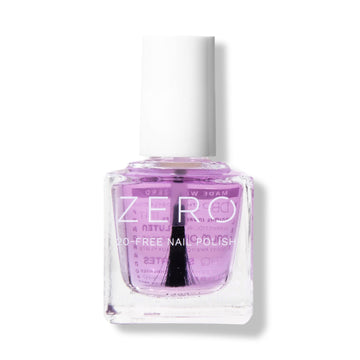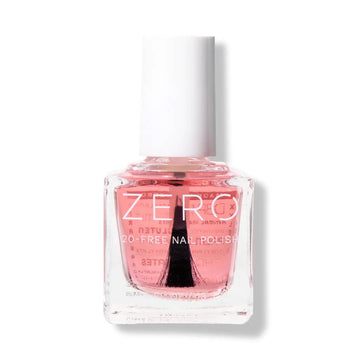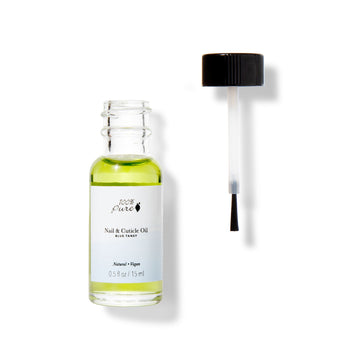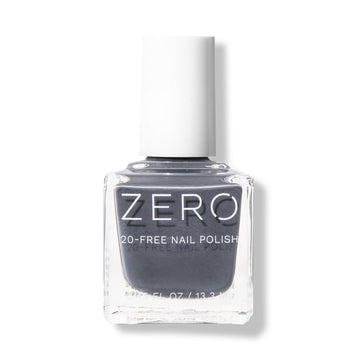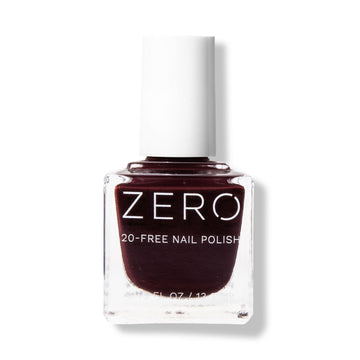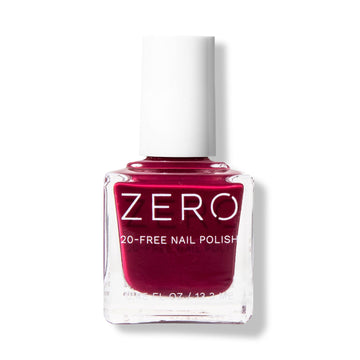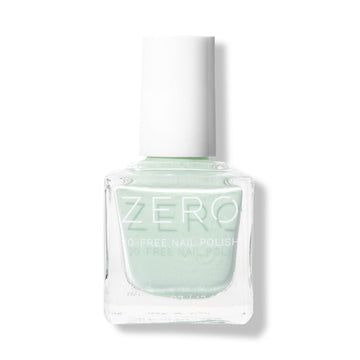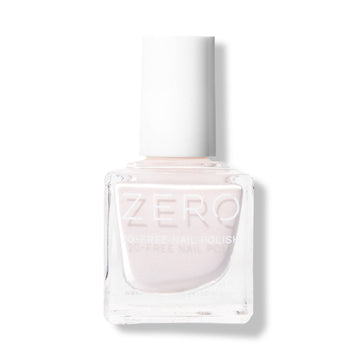Discover the Revolution of Nourishing, Vibrant Nail Colors
Written by: 100% PURE ®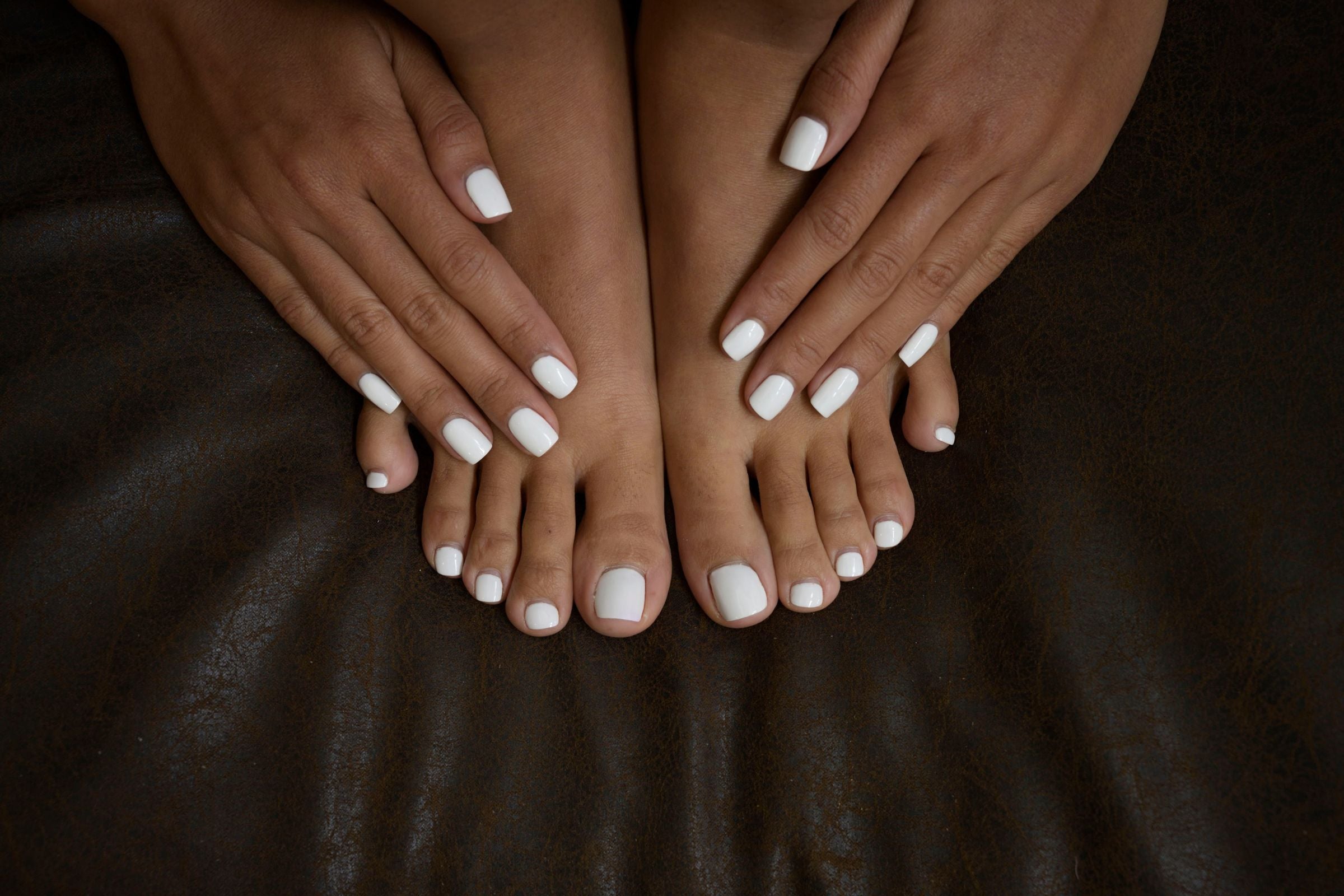
The beauty industry is witnessing a transformative trend with the rise of healthy nail polish. As consumers increasingly prioritize well-being, there's a notable shift away from traditional nail polishes laden with harmful chemicals. These conventional formulations, often containing substances like formaldehyde and toluene, raise concerns about nail and overall health. The emergence of healthier alternatives, free from toxic ingredients, marks a pivotal moment in beauty consciousness. This evolving trend reflects a collective commitment to safer, more sustainable nail care practices.
Conventional nail polishes often contain harmful chemicals like toluene, dibutyl phthalate (DBP), and formaldehyde, posing potential health risks. Toluene, a solvent, may cause dizziness and irritation. DBP, a plasticizer, has been linked to reproductive issues. Formaldehyde, a hardening agent, is a known carcinogen.
Beyond health risks, the environmental impact is significant, with these chemicals contributing to air and water pollution. Choosing healthier nail polishes without these substances is crucial to minimize personal health risks and reduce the environmental footprint of nail care practices.
A healthy nail polish is formulated without certain harmful chemicals commonly found in traditional nail polishes. These chemicals can include formaldehyde, toluene, dibutyl phthalate (DBP), formaldehyde resin, camphor, and more. Nail polishes labeled as "3-free," "5-free," "7-free," or "10-free" indicate the absence of a certain number of potentially harmful ingredients. For example, "5-free" means the polish is free from formaldehyde, toluene, DBP, formaldehyde resin, and camphor.
Benefits for Nail Health
Moreover, healthy nail polishes often include nourishing and beneficial ingredients. These can include vitamins, minerals, and natural extracts that contribute to the overall health of the nails. Examples of such ingredients are biotin, vitamin E, calcium, and plant extracts like aloe vera or bamboo extract.
Preventing Brittleness: Traditional nail polishes can sometimes lead to brittle nails due to the presence of harsh chemicals. Healthy nail polishes, being free from these harmful substances, reduce the risk of nail brittleness. The inclusion of ingredients like biotin and calcium can further strengthen the nails, making them less prone to breakage.
Preventing Discoloration: Some nail polishes may cause discoloration of the nails, especially when used frequently. Healthy nail polishes aim to prevent this issue by excluding chemicals that can cause yellowing or staining. Instead, they may contain ingredients that promote a natural and vibrant appearance of the nails.
Nourishing the Nails: Healthy nail polishes go beyond simply avoiding harmful ingredients. They often include ingredients that actively nourish the nails. For instance, vitamin E can provide hydration, preventing dryness and promoting flexibility. Natural extracts like aloe vera may have soothing and moisturizing effects on the nails and surrounding skin.
Maintaining Overall Nail Health: Regular use of healthy nail polishes can contribute to the overall health of the nails. The absence of toxic chemicals reduces the risk of long-term damage, and the presence of beneficial ingredients can contribute to the nails' vitality.
Reducing Sensitivity: Some individuals may experience sensitivity or allergic reactions to certain chemicals in traditional nail polishes. Healthy alternatives aim to minimize this risk by using gentler formulations, making them suitable for a wider range of users, including those with sensitive skin or allergies.
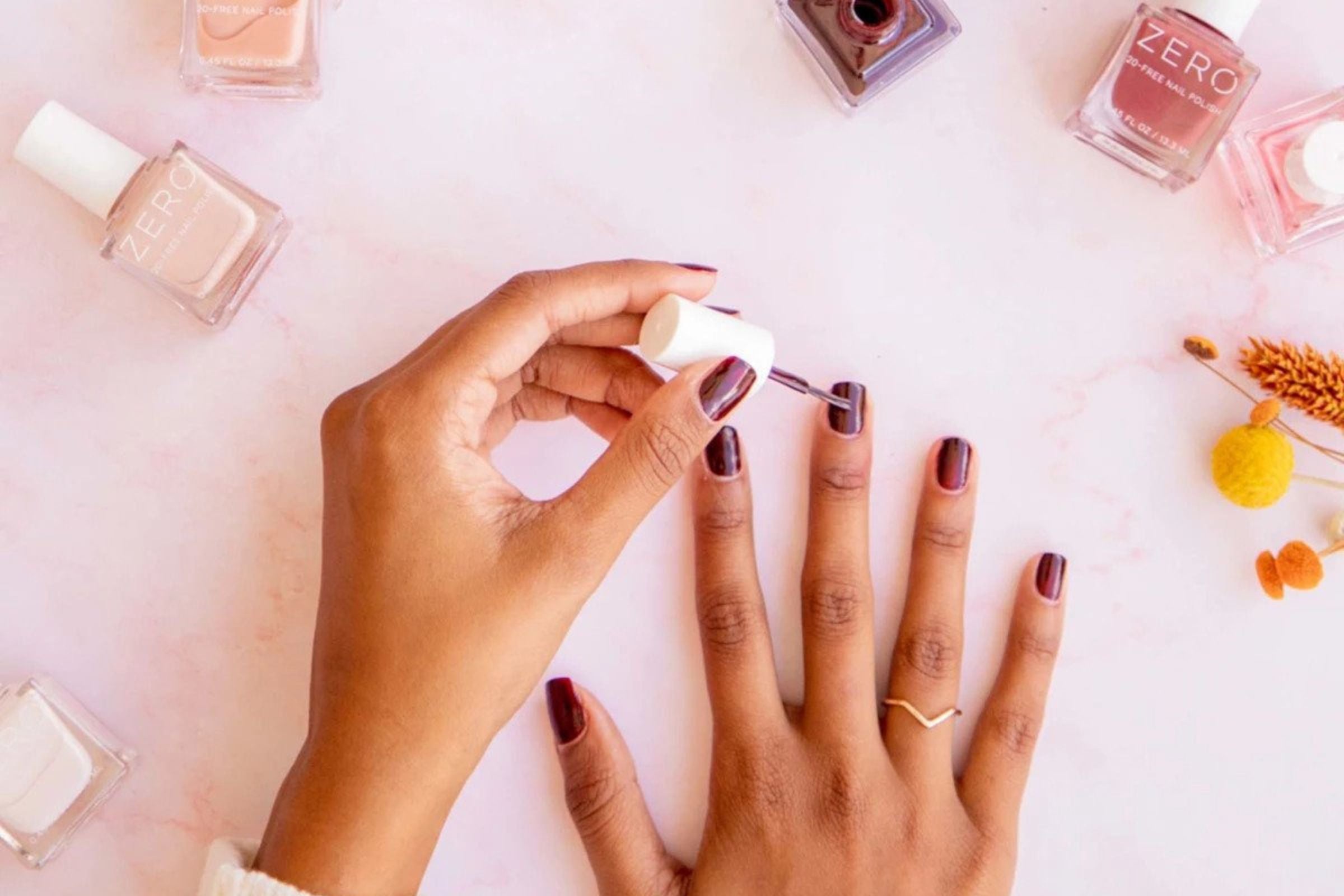
There has been a significant shift in the beauty industry towards producing nail polishes that are free from the most harmful chemicals. This shift is reflected in the labeling of nail polishes as "X-Free," where X represents the number of specific toxic ingredients omitted from the formula. For example:
3-Free: Excludes three harmful ingredients such as formaldehyde, toluene, and dibutyl phthalate (DBP).
5-Free: Omits five potentially harmful ingredients, including formaldehyde resin and camphor in addition to the 3-Free formula.
7-Free: Goes a step further by eliminating seven harmful chemicals, which might include formaldehyde, toluene, DBP, formaldehyde resin, camphor, xylene, and ethyl tosylamide.
Moreover, companies like 100% PURE have taken it even further with "20-Free" polishes. This means their formulations are free from a wider range of potentially harmful substances, providing consumers with an even cleaner and safer option for nail care.
This shift towards non-toxic formulas is driven by a growing awareness of the potential health risks associated with certain chemicals in traditional nail polishes. Consumers are now more conscious of the ingredients in their beauty products and are demanding safer alternatives that don't compromise performance.
Healthy nail polishes not only focus on what they exclude but also on what they include to actively promote nail health. Many of these polishes are enriched with vitamins, oils, and other nourishing ingredients to provide additional benefits to the nails. Here's how these additions contribute to stronger and more protected nails:
Vitamins (e.g., Biotin, Vitamin E): Biotin, also known as Vitamin B7, is known to strengthen nails and promote their growth. Vitamin E is an antioxidant that can contribute to nail health by providing moisture and preventing brittleness.
Natural Oils (e.g., Argan Oil, Jojoba Oil): Healthy nail polishes often contain natural oils known for their moisturizing and conditioning properties. Argan and jojoba oils are rich in fatty acids. They help in hydrating and strengthening the nails.
Plant Extracts: Some formulations may incorporate plant extracts like aloe vera, bamboo extract, or green tea extract. These extracts can have soothing, moisturizing, and antioxidant properties.
By combining non-toxic formulations with these enriching ingredients, healthy nail polishes aim to offer a holistic approach to nail care, providing both vibrant color and essential nutrients for stronger and protected nails.
Discover the 100% PURE 20-Free Line, a revolution in clean beauty. Free from 20 potentially harmful chemicals, this line not only prioritizes your health but also delivers stunning results. Let’s take a look at some of the must-haves for a complete nail care routine.
Horsetail Base Coat Polish: The foundation of a long-lasting manicure. It's not just about pretty colors; this base coat provides a smooth canvas for your polish while promoting nail health.
Glass Top Coat Polish: Seal the deal with a glossy finish. This top coat adds shine and durability to your polish, keeping your nails looking fresh for longer.
Nail & Cuticle Oil: Nourish those cuticles! This oil is a game-changer, keeping your nails and surrounding skin hydrated and healthy.
Newsletter Subscribe
for more blog updates and exclusive discounts
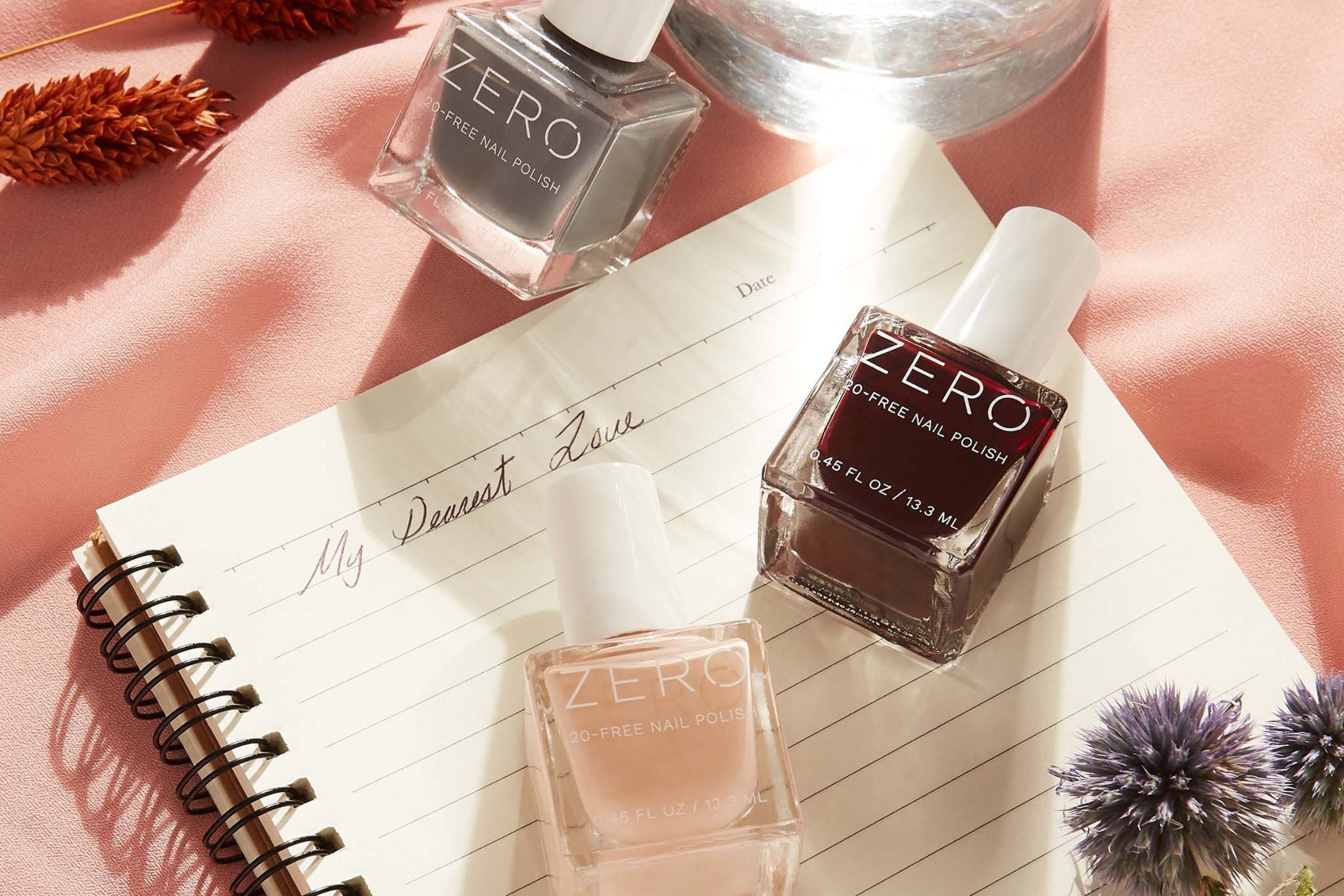
Take a peek at these trendy colors, inviting you to embrace something new:
Graphite Nail Polish: A sleek and versatile shade that adds a touch of sophistication to any look. Perfect for those who want a modern twist to their nail color.
Over the Maroon Nail Polish: Classic with a twist, this deep maroon hue is timeless yet on-trend. Ideal for those who appreciate a rich, elegant look.
Crims-On with the Show Nail Polish: Make a statement with this bold crimson shade. Whether it's a night out or a special occasion, this color is sure to turn heads.
Matcha Milk Tea Nail Polish: A muted, earthy green that's both calming and stylish. It's a unique choice for those who like to experiment with softer, nature-inspired tones.
Oat Milk Nail Polish: A neutral, creamy shade that goes with everything. Subtle yet refined, it's perfect for those who prefer understated elegance.
Dive into the world of 100% PURE's 20-Free line, where clean beauty meets trendy colors, offering not just style but a mindful approach to your nail routine.
How Do I Transition to Healthy Nail Polish from Regular Polish?
To transition to healthy nail polish from regular polish, start by removing all traces of your current polish using a non-acetone remover. Allow your nails to breathe and recover for a few days. Choose a healthy nail polish brand with non-toxic formulations, free from harmful chemicals like formaldehyde, toluene, and DBP.
Can Healthy Nail Polish Last as Long as Traditional Polish?
Healthy nail polish can last as long as traditional polish with proper application and care. Use a base coat, apply thin layers, and finish with a top coat for extended wear. Regular touch-ups and avoiding harsh chemicals enhance longevity.
Is Healthy Nail Polish Suitable for Nail Extensions and Artificial Nails?
Yes, healthy nail polish is suitable for nail extensions and artificial nails. Look for non-toxic formulas to preserve the health of natural and artificial nails. Ensure proper application and follow recommended care guidelines.
How to Properly Remove Healthy Nail Polish?
To remove healthy nail polish, use a non-acetone remover or DIY options like vinegar and lemon. Soak nails, gently rub off polish, and moisturize afterward. This method protects nails and promotes overall nail health.
Are There Any Affordable Healthy Nail Polish Options?
Affordable healthy nail polish options exist. Explore brands with non-toxic formulations and budget-friendly prices. Some drugstores and online brands offer a range of colors without compromising on quality. Look for sales and promotions for additional savings.
Making the shift to healthy nail polish is more than just aesthetics—it's a healthy and eco-friendly choice. By opting for formulas free from harmful chemicals and enriched with vitamins and oils, you're not only caring for your nails but also reducing environmental impact. Explore the range of options available for a mindful and vibrant nail care routine.
- Tags: December-2023, Nails
We carefully hand-select products based on strict purity standards, and only recommend products we feel meet this criteria. 100% PURE™ may earn a small commission for products purchased through affiliate links.
The information in this article is for educational use, and not intended to substitute professional medical advice, diagnosis, or treatment and should not be used as such.












